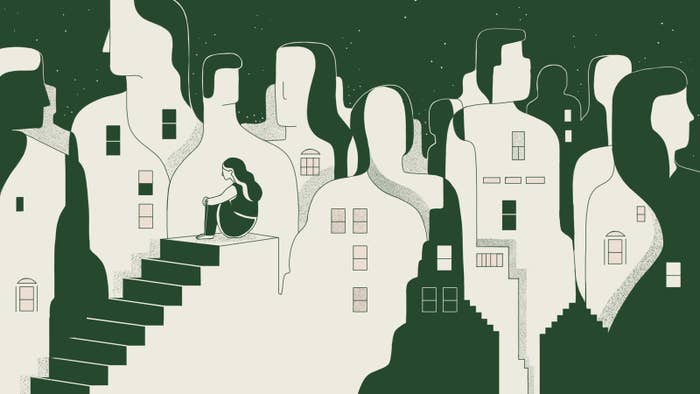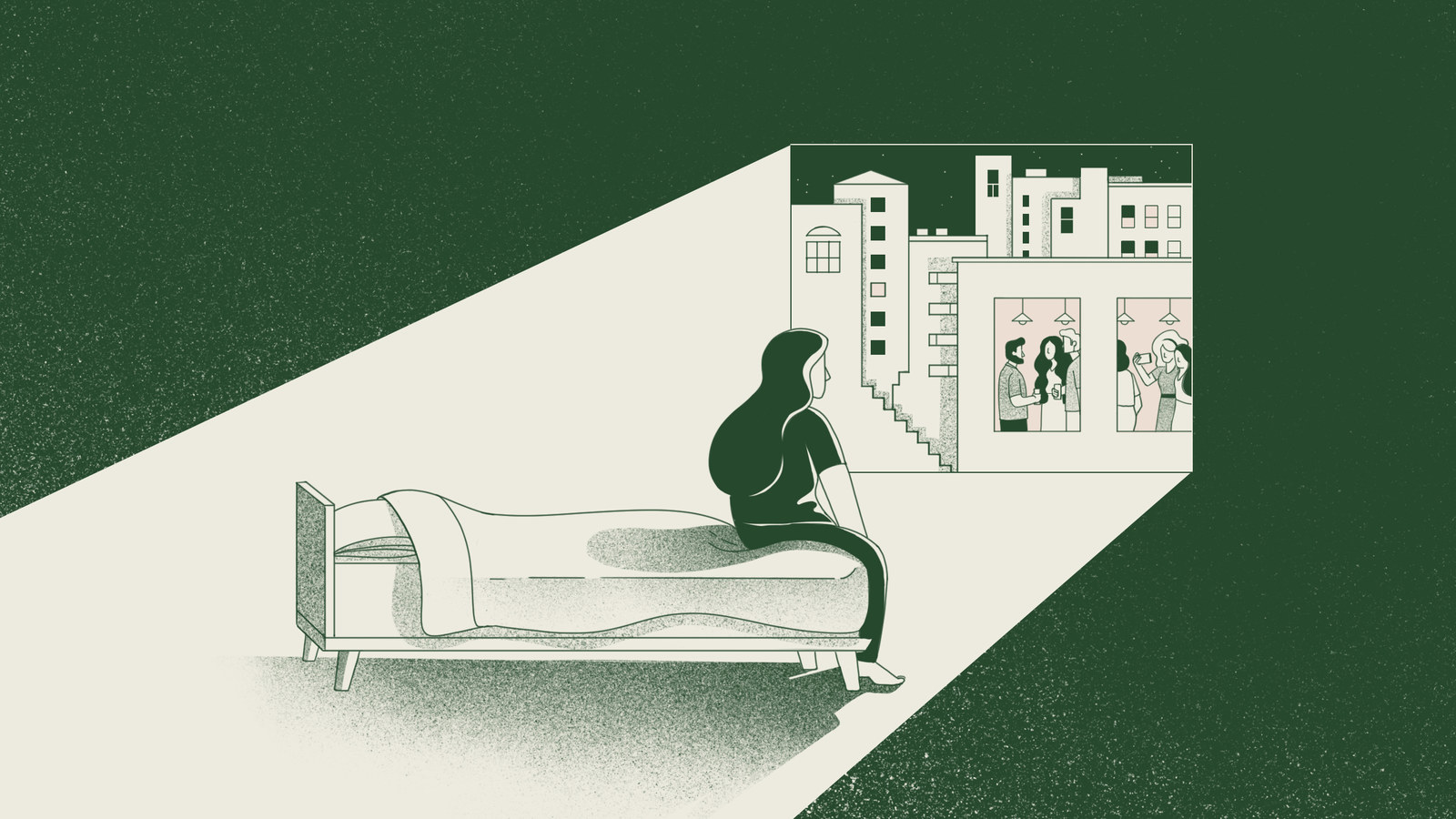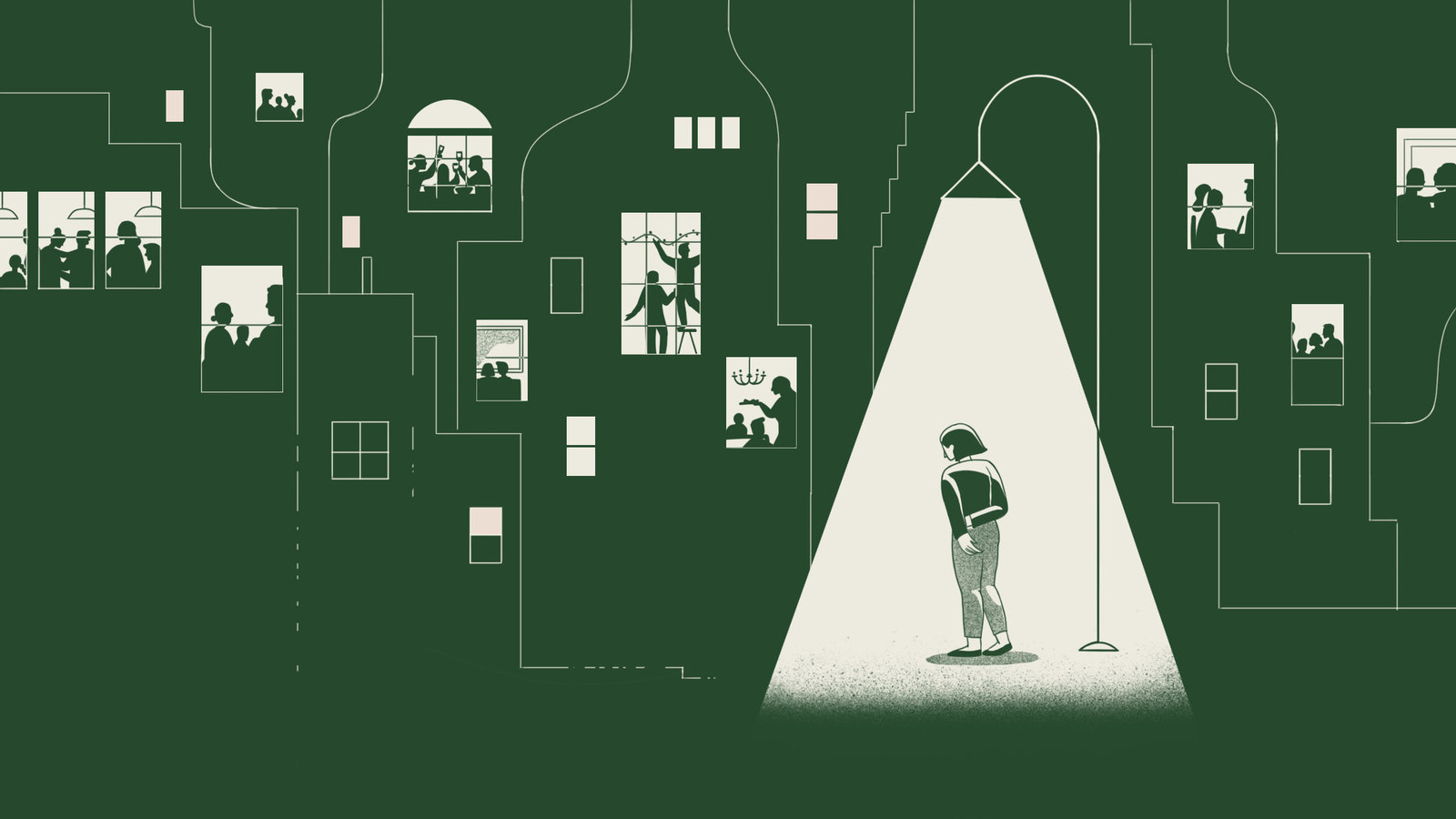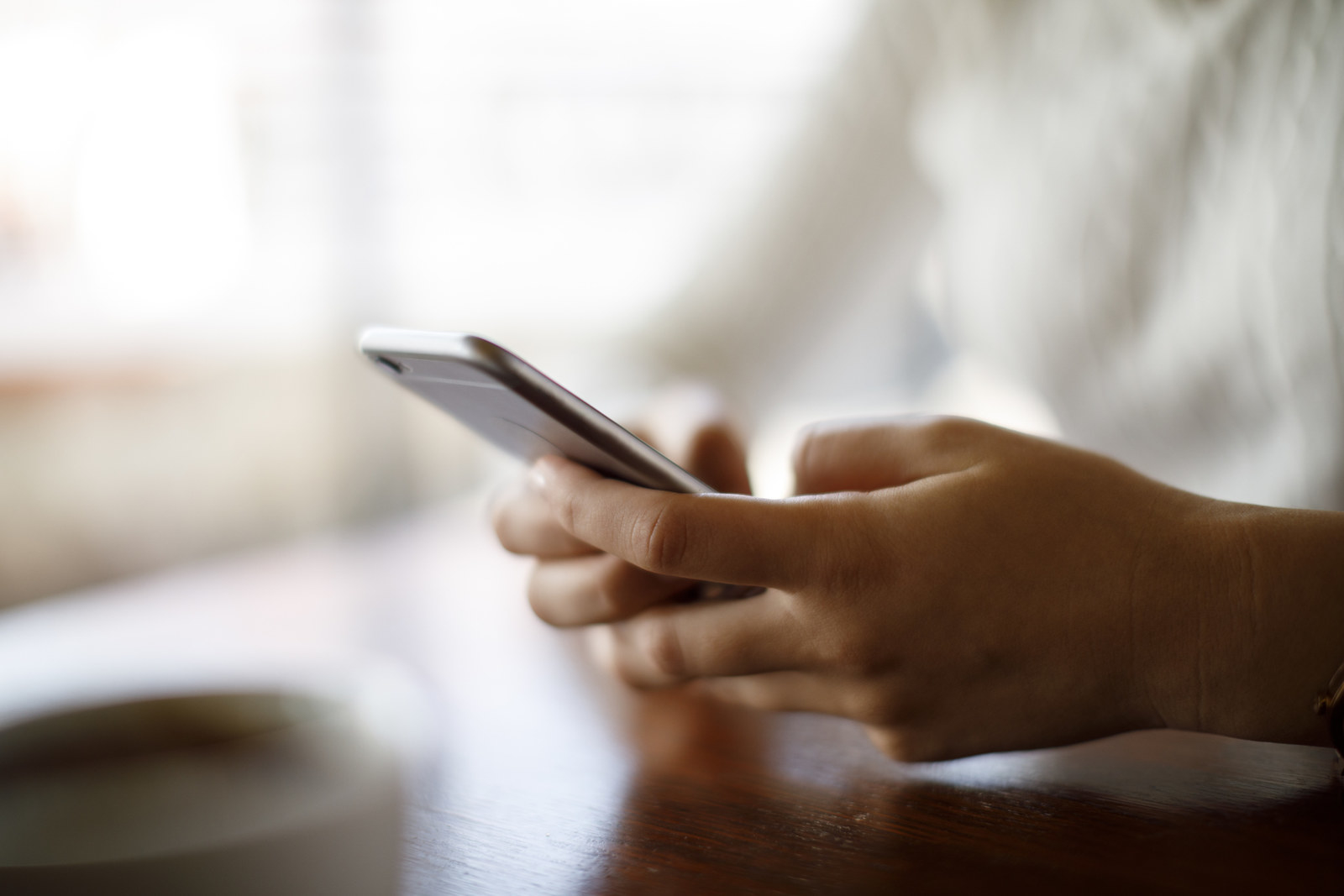Though somewhat inevitable and increasingly common, feelings of loneliness can be an immense source of shame.

1. It's important to admit — even just to yourself — that you're lonely.
Sorry to be the one to break this to you, but ignoring your feelings isn't going to make them go away. "Denial actually increases the severity of loneliness, rather than decreasing it," says Dehorty. "By not admitting that something is there, you increase the feeling's impact and therefore its significance." Acknowledging your loneliness is the first step to finding a resolution.

2. Understand that loneliness exists separately from sadness and depression.
"For some reason, a lot of people misunderstand loneliness and think it’s a weakness, or that it's just sadness or depression, but it’s a real thing that has some real consequences if not addressed and taken seriously," says Dehorty. By acknowledging that loneliness is its own feeling to untangle is to understand that it will need to be explored and coped with in a different way to that which you might work through feelings of depression or anxiety.
3. And know that it's 100% possible to feel lonely, even if you're surrounded by people every day.
"Being alone is a status, but lonely is a feeling, and lonely has little to do with the amount of people around either in your proximity or even in your life," says Dehorty. You know the lonely in a room of people trope? Well, it's a cliché for a reason, though so many of us still find it hard to accept.

4. If your loneliness has come after a move or the closing of a big life chapter, like the end of college, allow yourself to grieve that time or place.
Grief isn't just about losing people, it can also be tangled up in your feelings about moving on from certain routines and places of comfort. If your loneliness is a result of a life change, remember that you can both feel excited about the future, while also feeling sad at the loss of your past.
5. Loneliness can impact your physical health, so please don't dismiss it.
According to a study of almost 500,000 people, social isolation and loneliness can increase a person's risk of heart attack and stroke. Other studies have compared the health implications of loneliness to that of smoking. While most studies on social isolation look at chronic loneliness, it's important to keep in mind that your feelings are valid, important, and affect more than your mind and mood in the longterm, so are worth addressing.
6. And be aware that loneliness can lead to life-long isolation, so it's important to take your feelings seriously.
"It’s normal to have some sense of isolation sometimes in life, but if these feelings develop to a point where you find it hard to leave the house or be around people, you should seek professional help," says Dehorty. "When you become over-familiar with being alone — to the point where being with others feel uncomfortable — feelings of loneliness can last longer than they need to, and you can miss out on things, and people, that might have been really great."

7. Remember how your social life and desires were before you began to feel lonely.
An easy and common loneliness trap is convincing yourself that you prefer to stay in anyway, hate parties, or have just "grown out" of needing friends. Some of these things may be true for you personally, but this is likely only the case if they were also true for you in the past. "Being an introvert or a homebody are both things that are going to be fairly consistent throughout one's life, and consistent no matter where someone goes," says Dehorty. "So, if you're someone who was outgoing and social, and then becomes someone who isn't, that's a change that could be influenced directly be loneliness."
8. And also remember that studies literally prove that making new friends is really difficult.
A 2018 study found that the average person needs to spend 50 hours with someone to consider them a casual friend, and around 200 hours to become close friends with someone. That is...a lot of time. Even if you met a new friend for a two-hour dinner once a week, it would still take 100 weeks (according to this study) for that person to be a close friend. Whether or not this science is exactly true for you and your circumstance, it's still a good reminder that becoming close to people takes time, so don't beat yourself up for feeling lonely, even if your calendar is full.

9. Focus on connecting with people who have similar interests to you.
Whether you have a hobby, sport, or church that brings people together, use this as an opportunity to connect with people who are out there doing things and being social. Online friends and connections can be just as helpful. For example, if you're into bullet journaling, find a local journaling group on Facebook and put a call out for a meet up. Other local Facebook and Reddit hobby-related groups are a great place to find a online community — and even if that doesn't translate to IRL friendships, remember that online friendships are very real and can be incredibly deep and beautiful.
10. But don't expect that new people will be able to replace the important or memorable relationships you had in the past.
Meeting amazing new people can be one of the greatest joys in life, but the expectation that these people are capable of replacing old friends (at least in the short-term) can be really damaging. By adjusting your expectations that new friends might take a while to be good friends, you can feel more empathetic of your loneliness.

11. Be conscious of the meaningless communication in your life.
Right now, it feels like we're technically more connected than ever — but are we really? Sure, you might reply to a new friend's Instagram story three times a week, fave their tweets, and even send a text or two, but is this real and meaningful communication? According to Dehorty, not necessarily. "As connected as we all are, there's a lot of evidence that says we're less connected now than we ever have been. People are getting these kind of Band-Aid connections, but loneliness is now more of an issue than ever," he says.
If you find yourself second-guessing your loneliness because you've been texting or messaging people all day — don't. Meaningful communication is very different to meaningless communication and sometimes it's the only thing that can make you feel properly nourished and connected.

12. Think about your relationship with social media, and consider taking a break from it.
A recent study by Penn State University found that Facebook, Snapchat, and Instagram increased feelings of loneliness and depression in participants. While these apps might make us feel more connected to the people in our last home and up-to-date with what's going on in their lives, these habits of checking in on them are likely doing your emotions more harm than good. Pay close attention to how you feel after a scrolling session, and try adjusting your habits accordingly, then see how you feel.
13. And pay close attention to your eating, sleeping, and exercising habits when you're feeling lonely.
Changes to your daily self-care routine can be a big indicator of changes in your mental health, so please pay attention. While loneliness exists separately to sadness and depression, feelings can change, spiral, and turn into deeper problems.
